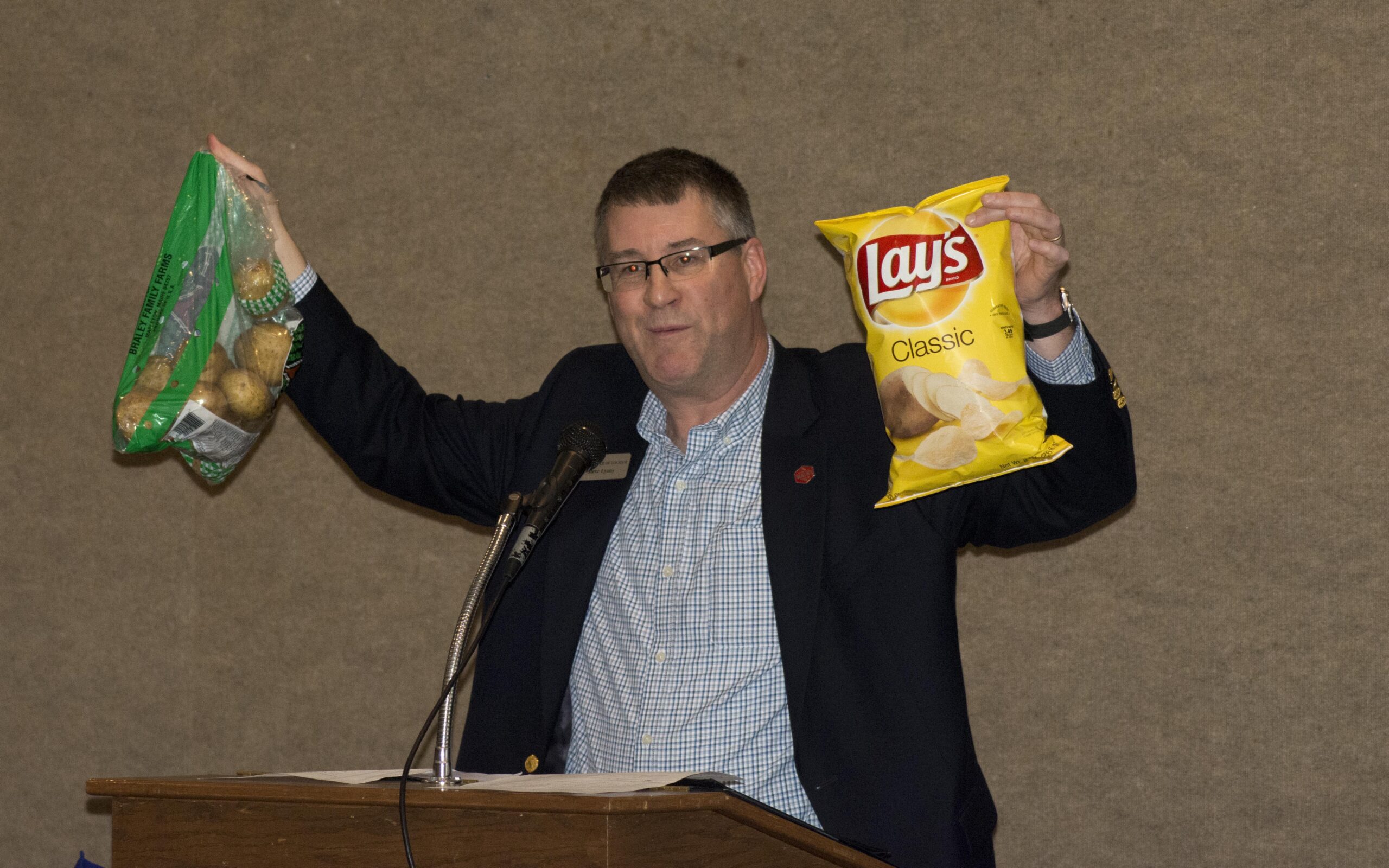
CARIBOU, Maine — Roughly 100 business owners, state officials, and guests gathered at the Caribou Inn and Convention Center on Oct. 25 to discuss tourism in the County and its impact on the local economy.
Keynote speaker Donna Moreland, a governor’s account executive who specializes in destination development for rural Maine, broke down the components of tourism and how small northern Maine towns can create a cohesive plan to promote their region.
She began by explaining the concept of destination development, which encourages community collaboration focused on the goal of growing tourism to boost local economies.
To help guests understand the distinction between development and marketing, Moreland shared an example that relates to tourism on a micro-level: inviting guests over to a home for a week.
“We start to think about a good time for them to come,” she said, “and then you start thinking that you need to clean up the house, but then you think about what to do from there. Maybe you don’t want to cook every night, so you think about where to take your guests on certain nights. How do we give them a real experience?”
She said that development work is essentially just that, planning an experience for visitors, getting ready and preparing for their visit.
“That all happens, or should happen, before we begin to issue the invitation,” she said. “Development work is the hard work you do upfront before you issue the invitation.”
This work could mean looking at restaurants that close relatively early in the day, or museums that are only open for a few hours a week, and collaborating with these businesses and organizations so that visitors have a positive and accommodating experience while in the area.

Donna Moreland, governor’s account executive who specializes in destination development for rural Maine, was the keynote speaker during an Oct. 25 fall tourism conference hosted by the Northern Maine Development Commission at the Caribou Inn and Convention Center. In her speech, she emphasized the importance of community collaboration as one of the key components to boosting rural tourism. (Chris Bouchard)
Moreland and other speakers agreed that collaboration between businesses and community organizations is essential in meeting these goals.
Once the tourists arrive, however, Moreland said that their destination should ideally have four times the activities than the time it takes for them to travel. For example, if someone drove ten hours to the County, they should ideally have 40 hours worth of waking activities to keep them engaged.
Some of these activities, she said, may be free, however she emphasized that tourism ideally needs to have an economic impact, and suggested the business owners and community leaders avoid encouraging tourists with all of a community’s free offerings.
After all of the development work, and a community has set its figurative house in order, Moreland said that marketing can begin. She said communities should be marketing the assets they have and that are serving them well, while also striving to prepare other potential attractions so those new products and experiences can be marketed in the future.
“You’ll have something brand new that you can put out to the public,” she said, “so you’re always working in the background and constantly creating new tourism products.”
She recapped her keynote address by saying that the most successful tourism communities in Maine are thriving because they have qualified and committed local leadership along with grassroots support from local citizens.
“They’ve planned,” she said. “”They have documents that encompass those plans, and they’re fiscally organized. They have volunteers because, as you do the work, people should keep coming onboard, and they’re constantly working on other products in the background while promoting what they have.”
One member of the audience told Moreland that he first came to Aroostook County nearly 40 years ago as a 2nd lieutenant in the Air Force stationed at Loring Air Force Base in Limestone. He said he and his wife soon fell in love with the community and purchased a farm in New Sweden, where they have lived for 38 years.
“The people and the environment are what drew us,” he said, “and what kept us here.”
After both Moreland and the audience member received applause, Steve Lyons, director of the Maine Office of Tourism, made a few final comments emphasizing the importance of collaboration.
A tourist visiting The County for the first time, Lyons said, could not care less about how “Joe stole Tim’s girlfriend in high school,” or how about two people played on “rival football teams.” They only care about what people in the region have to offer.
“I’ve heard it said that people here work in silos,” he said. “Well, blow up the silos and start working together, because that’s how we’re going to be successful.”
He reminded the audience, which primarily consisted of local business owners and municipal officials, that if only “five or six people in this room contacted the state Legislature, they’d think it was a windfall.”
“A handful of small business owners in a rural environment,” he continued, “are going to be the ones who make a difference in Augusta.”
He explained that Aroostook County has a rich culture and history, and held up a bag of potatoes to demonstrate how much potential the region’s major export has in terms of telling stories.
“How do you get this to become this,” he asked as he held up a bag of potato chips, “or Cold River Vodka that’s made from Maine potatoes, or frozen french fries. A lot of people will say potatoes come from the grocery store and not know about the hard working farmers in the state, some of which are in the fourth generation of their family farm. If you can tell those stories, that’s culture. That’s heritage.”







